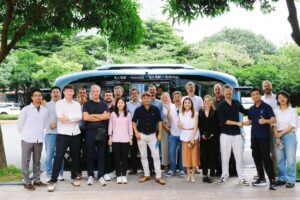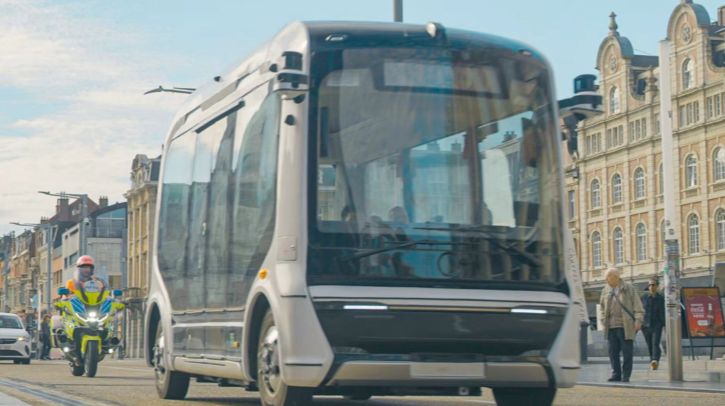WeRide has expanded into Belgium with the launch of its Robobus in Leuven, in partnership with Flemish public transportation company De Lijn, the City of Leuven and mobility consultancy firm Espaces-Mobilités. The move marks WeRide’s 11th global market worldwide and follows European launches in France, Switzerland and Spain.
WeRide’s Robobus will first conduct field preparations in downtown Leuven, between Leuven Station and Heverlee. This busy route, which features dense city traffic and connections to a major transportation hub, reflects typical Belgian urban conditions. Public road testing is expected in mid-September, with a safety officer on board during the first phase.
“Entering Belgium is a strategic step in WeRide’s growth. Europe is a key AV market with strong public investment and clear commercialization paths, with Belgium standing out as an mobility-focused innovation hub,” said Jennifer Li, CFO and head of international at WeRide.
“We’re pleased to partner with De Lijn, Espaces-Mobilités and the City of Leuven, which have shown strong support for autonomous mobility, as we work to scale autonomous driving services across Europe, with the goal of achieving fully driverless operations.”

Pending successful testing and regulatory approval from the public department of Mobility and Transport, a pilot autonomous shuttle service will be operated by De Lijn along this route, from mid-November to the end of January 2026. This will mark Belgium’s first commercial deployment of autonomous vehicles (AVs) in mixed and complex traffic.
“With this pilot project, we are taking an important step toward the future of public transport in Flanders. Autonomous shuttles are no longer science fiction, but a concrete solution we are testing with our partners in Leuven. We are using this technology to create safer, more efficient, and more accessible shared mobility. In the future, we can use this technology to attract many more passengers by expanding public transport in an attractive and efficient way,” said Ann Schoubs, CEO of De Lijn.
Following the trial period, the shuttles are expected to enter regular service. The service aims to improve first- and last-mile connectivity while seamlessly integrating AVs into Leuven’s transit network, with the longer-term goal being to achieve fully driverless operations.
“With this first project, we are tapping into the potential of AVs to improve road safety, reduce traffic congestion and ease parking pressure. Outside city centers, they can also provide last-mile connections and reliable transport to rural areas and for people with limited mobility,” said Annick De Ridder, Flemish minister of mobility, public works, ports and sports.
In preparation for the Leuven launch, De Lijn and Espaces-Mobilités completed a year-long training program on autonomous mobility, which included technical workshops and a study tour to WeRide’s Guangzhou office.
“Autonomous mobility promises to be the biggest revolution in transport since the combustion engine. If that’s the case, it’s essential that our regions and the public sector prepare for this transformation. The program we are implementing in Belgium, in collaboration with various regions and transport operators, is the best way to learn together and develop a coherent public policy to improve mobility and avoid reinforcing individual car use,” said Xavier Tackoen, partner at Espaces-Mobilités.
The pilot is supported by EIT Urban Mobility, an EU body that accelerates the transition to sustainable mobility, highlighting strong public-private sector collaboration.
Related news, WeRide launches 24/7 fully driverless robotaxi service in Guangzhou


